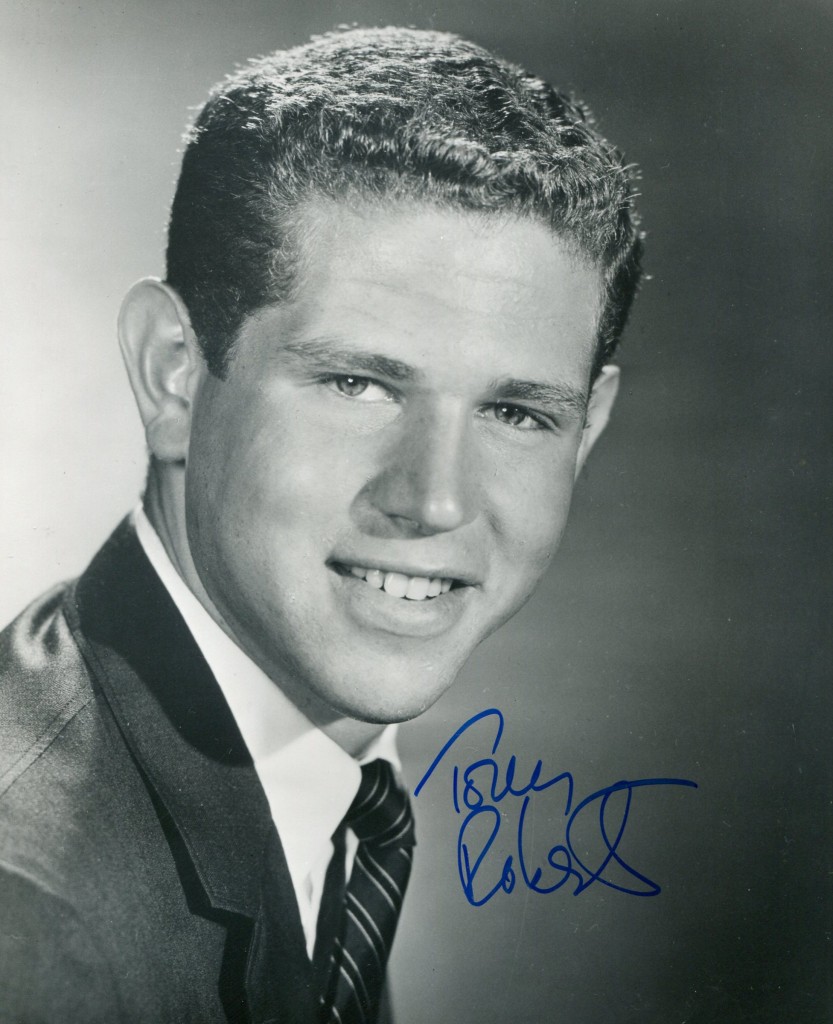Tony Roberts was born in New York in 1939. After attending Northwestern University be made his Broadway debut in 1962 in “Something About A Soldier”. He is best known or his work in the films of Woody Allen including “Play It Again Sam”, “Annie Hall” and “Hannah and her Sisters”.
TCM Overview:
This tall, curly-haired son of longtime CBS radio announcer Ken Roberts debuted on Broadway in “Something About a Soldier” (1962). Twice-nominated for Tony Awards, Tony Roberts has had notable collaborations with Neil Simon (appearing in three Broadway productions, a film and a national tour) and Woody Allen (two plays and six films). Although Roberts’ stage credits have outnumbered his film appearances, he is perhaps best recalled for his work with Allen. He reprised his stage success as the businessman and best friend whose wife (Diane Keaton) Allen covets in “Play It Again, Sam” (1972). Roberts’ command of upwardly mobile mannerisms and affectations made him the perfect WASP foil to Allen’s nebbish persona as evidenced by the best-friend roles he played in such films as “Annie Hall” (1977), “A Midsummer Night’s Sex Comedy” (1982) and “Hannah and Her Sisters” (1986).
Roberts has acted in other films, including Sidney Lumet’s “Serpico” (1973, again as an intimate of the title character), “The Taking of Pelham One, Two, Three” (1974, as a mayoral aide) and Lumet’s “Just Tell Me What You Want” (1980, as a gay film executive). As the star of “Amityville 3-D” (1983), Roberts turned in a solid performance that complemented the competence at all levels that kept that sequel from being trashy. He took a few days’ leave from the hit musical “Jerome Robbins’ Broadway” (1990) to rush to L.A. to film his role as a nasty advertising executive in Blake Edwards’ “Switch” (1991).
Despite his frequent Broadway appearances, Roberts has rarely been the first choice, originating few musical roles like his Tony-nominated turn in the unsuccessful “How Now, Dow Jones” (1967). While he was the first to play the parts on stage, he inherited two well-known roles, both involving drag: Joe/Josephine, the role originated by Tony Curtis in Billy Wilder’s 1959 classic “Some Like It Hot”, in “Sugar” (1972), and Toddy, the gay mentor of a down and out singer, in Blake Edwards’ 1996 stage version of “Victor, Victoria”. Roberts has also appeared in non-musical roles, most notably in “Absurd Person Singular” (1974) and in the revival of “Arsenic and Old Lace” (1986). He also tried his hand at directing with the 1992 Off-Broadway staging of Charles Grodin’s comedy “One of the All-Time Greats”.
But whatever qualities that made him Woody Allen’s favorite WASP for a while never translated to the small screen. His featured work as Lee Pollack on “The Edge of Night” (1963-67) and his starring turns on the short-lived series “Rosetti and Son” (NBC, 1977), “The Four Seasons” (CBS, 1984), “The Lucie Arnaz Show” (CBS, 1985) and “The Thorns” (ABC, 1988) all failed to captivate the public. The nondescript actor persevered all the same, carving out his niche as a working actor. In the 90s, he teamed with his future “Victor, Victoria” co-star Julie Andrews in her TV-movie debut “Our Sons” (ABC, 1991) and also acted in the ABC movie “Not in My Family” (1993), “Arthur Miller’s American Clock” (TNT, 1993) and NBC’s “Perry Mason Mystery: The Case of the Jealous Jokester” (1995). He also provided voices for PBS documentaries “Buckminster Fuller: Thinking Out Loud” (1996) and “The Trial of Adolph Eichmann
The above TCM overview can also be accessed online here.


